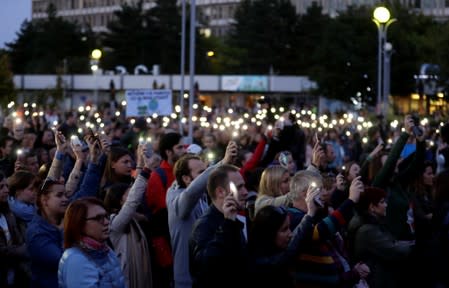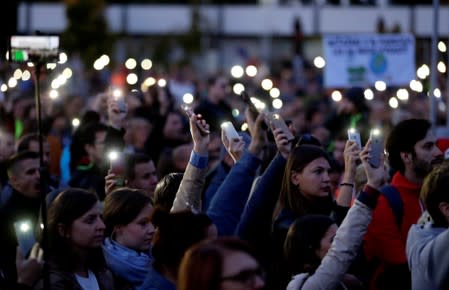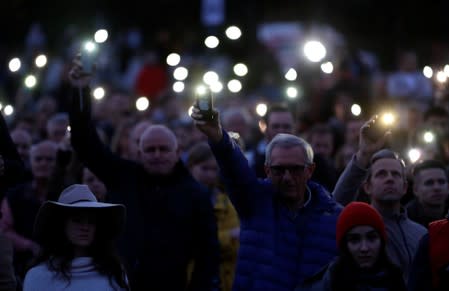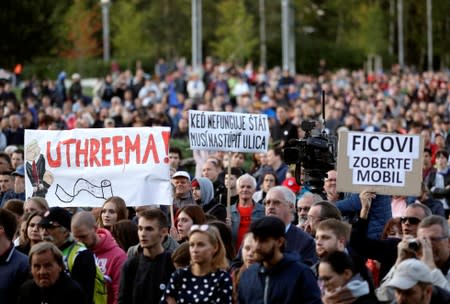Slovak street protests return as investigation into murdered journalist builds
BRATISLAVA (Reuters) - Thousands of Slovaks protested in the capital and other cities on Friday after new revelations from the investigation into a journalist's killing in 2018, although turnout was down on last year's demonstrations.
Protesters filled the capital Bratislava weekly following the February 2018 murder of investigative reporter Jan Kuciak and his fiancee Martina Kusnirova at home, amid mounting anger over corruption.
The protests, which attracted as many as 70,000 people at one point, forced then-prime minister Robert Fico to quit.
His three-party ruling coalition, led by Fico's hand-picked successor, Peter Pellegrini, has survived, but public anger has returned with new details from the investigation into Kuciak's killing showing the reach a main suspect had into state bodies.
A subject of Kuciak's reportage was Marian Kocner, one of five people now awaiting trial for the killings, and an acquaintance of politicians from various parties.
Four of those charged, including Kocner, have pleaded not guilty, while the fifth has confessed to shooting Kuciak and has been cooperating with police.
Special prosecutors said last month Kocner's phone showed communications with "representatives of state bodies and the justice system".
An estimated 5,000 people demonstrated in Bratislava on Friday, the first protest since February. Marchers held signs saying "Kocner is Fico" and "Sick of it all".
"In the past 12 years, a system of certain privileged people has been built in this country that has eventually led to the murder of a journalist and his fiancee," said Karolina Farska, an organiser.
Pellegrini's ruling Smer party, which has governed for ten out of past 12 years, still leads in polls with 21% - down from 28% in the 2016 election - but has suffered at various polls since the murders.
There is no evidence Pellegrini had contacts with Kocner, but he has come under fire for what the opposition and protesters claim was inaction against implicated members of his government.
A deputy justice minister resigned this month after her mobile phone was seized by the police, although she denied any contacts with Kocner.
Slovak media published parts of messages Kocner allegedly exchanged with a woman charged in the case and with business allies in which they discussed his alleged contacts among authorities.
Kocner's lawyer did not respond this week to emailed questions on some of the media reports.
Prosecutors said in August they expected to finish their investigation this autumn.
(Reporting by Tatiana Jancarikova; Editing by Mark Potter)

 Yahoo News
Yahoo News 





